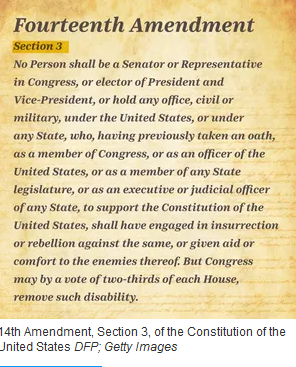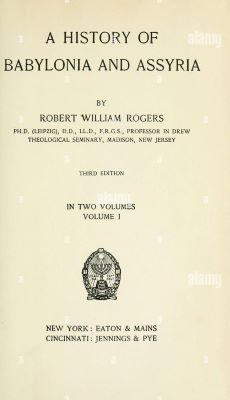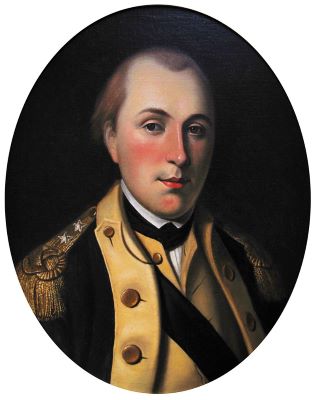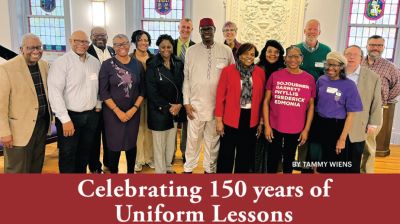
History is in the news. It is not simply an ivory tower study for academicians. Instead it is front and center in the news today. We are in the first year of the 250th anniversary of America’s first civil war. Actions from the second civil war are being used to fight the third civil war. History is all around us and it is important for history organizations and schools to see that history is alive, well, current, and relevant.
The specific action in the present is the submission by three groups of historians of amicus briefs to the Supreme Court for the case about the Colorado Supreme Court removing someone from the ballot on the grounds of the 14th Amendment Section 3. Each brief is different except that it concurs with the decision of the Colorado Court and requests the Supreme Court render the same decision.
Before examining each of the briefs individually, it is worth noting what they have in common that renders their suggestions moot. Each one examines a facet of the history of the 14th Amendment Section 3 at its time of origin and then seeks to apply it in the present. There is one glaring error in that approach that needs to be addressed.
Think of the Emancipation Proclamation. Did it end slavery throughout the country? No! It ended slavery in the areas controlled by the Union forces. The national abolition could only occur after the war was over. Only then could the Constitution be amended to eliminate slavery nationwide.
The same applies to the 14th Amendment. If it had been ratified while the second Civil War was being fought it would have been meaningless. For Section 3 to apply, there had to be a victor in war first. The Union could only implement the Amendment after it had successfully vanquished its Confederate foe. Only then would it work.
MAGA HAS NOT BEEN DEFEATED. FAR FROM IT.
UNLIKE IN THE SECOND CIVIL WAR, NEITHER SIDE HAS YET TRIUMPHED IN THE THIRD CIVIL WAR.
MAGA lost the battle of January 6 which it is trying to erase from the history books. Whether it succeeds or not, MAGA is far from being defeated and may even take back the White House and the Capitol after the upcoming election.
There is good reason why the Supreme Court is running around like a chicken with its head cut off on this case. It seeks to avoid the issue because
MAGA HAS NOT BEEN DEFEATED. FAR FROM IT.
UNLIKE IN THE SECOND CIVIL WAR, NEITHER SIDE HAS YET TRIUMPHED IN THE THIRD CIVIL WAR.
Suppose the Supreme Court upheld the decision rendered by the Colorado Supreme Court, what would happen next? How many states would refuse to comply with that decision? How many states would send MAGA electors for the certification on January 6, 2025? The Supreme Court knows that a decision in support of the Colorado Supreme Court would not be followed by all 50 states. It would not be followed because
MAGA HAS NOT BEEN DEFEATED. FAR FROM IT.
UNLIKE IN THE SECOND CIVIL WAR, NEITHER SIDE HAS YET TRIUMPED IN THE THIRD CIVIL WAR.
All such a decision would mean is that open defiance of the Supreme Court would commence the moment of its announcement. All hell would then break loose and the date of that announcement would be the new Fort Sumter. For the 14 Amendment Section 3 to apply, the insurrectionists, as with the Confederates, would have to be defeated first. That is not remotely close to having happened yet or in the foreseeable future.
AMICI CURIAE BRIEF #ONE: 25 HISTORIANS
Let me turn now to the three briefs in the order in which I happened to read them. The first one was submitted by 25 historians. I will not list their names here. Suffice it to say, they are prominent figures in American history, Civil War history, and the Reconstruction.
They begin with a statement of their credentials. They then state the two issues they wish to address.
Whether 1) Section 3 of the 14th Amendment covers the president and 2) whether its implementation requires an addition act of Congress (page 1).
In their Summary of Argument (page 2), they declare:
Analysis of this (contemporary evidence) demonstrates that the decision-makers crafted Section 3 to cover the President and to create an enduring check on insurrection requiring no additional action from Congress.
That means that former Confederate President Jefferson Davis was barred from running for President of the United States.
Nothing is said in the brief about whether the former President of the United States also is barred based on the insurrection he led while still in office. Jefferson Davis will prove to be a red herring in these analyses since he never was President of the United States.
The historians then turn to a discussion about whether or not the President of the United States is an “officer (pages 4-14). Again Jefferson Davis figured prominently in the analysis. The winning side expressed concern that the Confederate president of the losing side would run for President of the United States on the wining and they wanted to ensure that could not happen. The historians seem to be treating Davis as if he had been a legitimate president.
The next section focuses on the possibility of future insurrections (pages 14-23). They again note that no further action was required from Congress to effect the disqualifications under Section 3 (page 15). They keep referring to “former rebels” and “former Confederates” as if that designation is somehow relevant to MAGA insurrections who most definitely are here in the present.
Finally, in the final section, the historians turn to the question of whether or not additional action is required by Congress to effectuate the disqualification under Section 3. They note that:
Congress could lift any disqualification for office only by two-thirds vote. Strikingly, however, the Section did not require any action by Congress to disqualify insurrectionists (Page 24).
Once again, they refer to Jefferson Davis who knew he had been disqualified under Section 3. All “former” Confederates knew they had been “instantly” disqualified even though no Congressional act had been passed or criminal conviction had been obtained. Once again, any parallel with MAGAs is a false one. In fact, MAGAs can still impeach their foes. There are no former MAGAs because
THE WAR IS NOT YET OVER.
As an example of how the disqualification worked, the historians cite the a memo of the Adjutant General of the War Department dated June 20, 1867. As a result, military commanders under the authority of the Reconstruction Act of 1867 summarily enforced disqualifications (page 25). Notice what it took to apply disqualification: victorious military commanders.
SHADES OF MICHAEL FLYNN CALLING FOR THE SEIZURE OF VOTING MACHINES!
CONCLUSION
This brief falls far short of what would be needed to convince Supreme Court justices to uphold the ruling of the Colorado Supreme Court.
The situation between the MAGAs and the Confederates is substantially different. The MAGAs still rule numerous states and are quite significant in Congress.
The parallel between Donald Trump and Jefferson Davis is false. The former was the legitimate President of the United States when he led the insurrection to remain in power despite having lost the election. The latter never was President of the United States and would have been quite content to remain President of the Confederacy if only the Union had let him.
Given the ongoing civil war today, the Supreme Court decision to uphold the Colorado Supreme Court decision would only hasten the day of reckoning for the continued existence of the United States as a single country as we know it today. Imagine if the Supreme Court had ruled that the secession by South Carolina had been illegal. Would that have prevented the Civil War from having occurred?
There are various scenarios which could play out on the issue of disqualification. But before turning to them, there are two more briefs to review.






Good point. Half of the states have sided with Texas in endorsing nullification and interposition.
rpf
Faulty historical analysis, especially in these extremely dangerous times when our democracy is hanging by a thread.
Are you suggesting the brief will be successful?